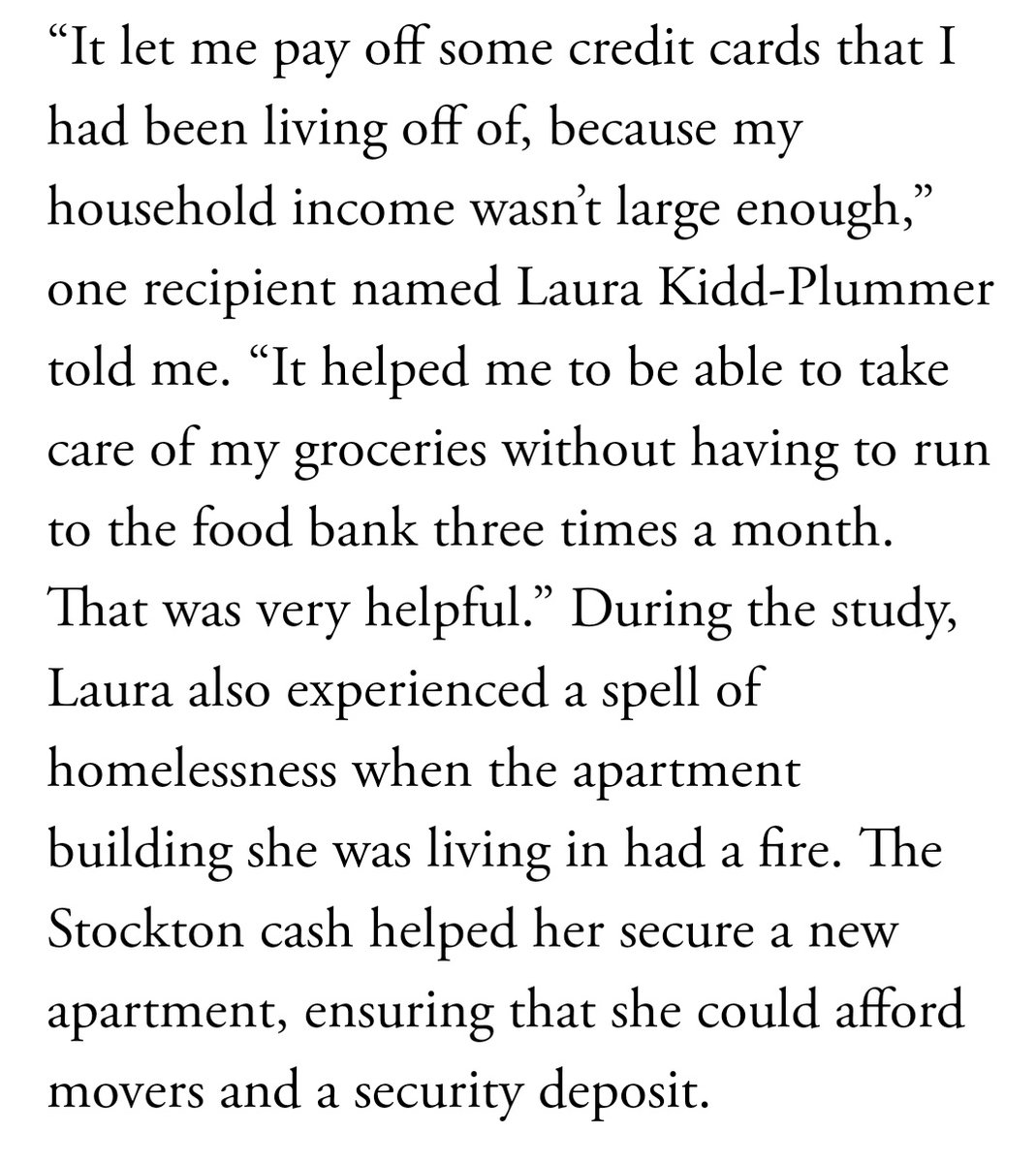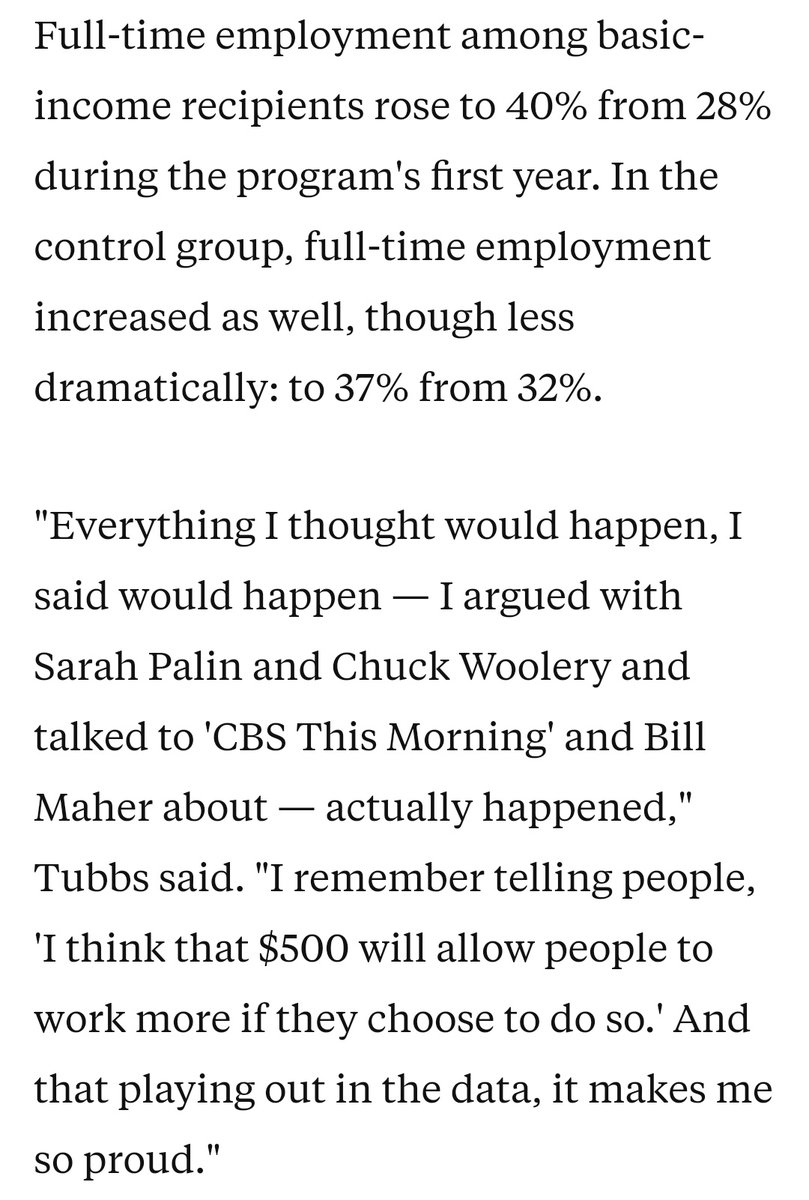
Among families earning under $50,000, 56% mostly used their $1400 stimulus check to pay down debt, 26% mostly saved it, and 18% mostly spent it.
Among families earning over$100,000, 38% mostly paid down debt, 39% mostly saved it, and 23% mostly spent it.
economicsecurityproject.org/wp-content/upl…
Among families earning over$100,000, 38% mostly paid down debt, 39% mostly saved it, and 23% mostly spent it.
economicsecurityproject.org/wp-content/upl…
I think it's important to note that based on the above numbers, 77% to 82% of the stimulus checks put no upward pressure on inflation at all because the money didn't chase any goods or services in limited supply.
In fact, paying off debt is deflationary.
yesmagazine.org/economy/2019/0…
In fact, paying off debt is deflationary.
yesmagazine.org/economy/2019/0…
So why spend $850 billion on stimulus checks if the majority of the money was saved or used to pay off loans instead of being spent into the economy? Because money can be for survival or loan forgiveness or a feeling of security for a rainy day.
Let people decide for themselves.
Let people decide for themselves.
If the stimulus checks had been more targeted, more people in need would have been excluded. If we did debt forgiveness instead, many people wouldn't have been able to buy food.
And one reason people save is economic insecurity. Make checks monthly, and people will spend more.
And one reason people save is economic insecurity. Make checks monthly, and people will spend more.
Economists and politicians love to think they have a kind of superpower where they can target "the deserving" using data that is 100% accurate. Let's exclude those who won't spend it, they say, while pretending they know exactly who that is, using tax returns from a year ago.
If you want to target, then just get stimulus to everyone and then target high income earners come tax time. If someone with a high income just ends up saving the stimulus, okay, increase their taxes to claw it back after the fact, not before, because they *could* have needed it.
• • •
Missing some Tweet in this thread? You can try to
force a refresh












